Nicolae Ceausescu was Romania’s dictator for over 20 years and is, obviously, one of the most despised leaders Romania has even had. And today we will check out some lesser known facts about Nicolae Ceausescu.
As strange as it might sound, there are many people living in Romania today who think fondly of him – it’s usually the older people who were content during the communist era, happy they had a job and an income that guaranteed that they won’t die of hunger.
What people don’t remember is the lack of freedom, the lack of consumer goods, the general poverty that’s still felt today throughout the country, the fact that everybody was always hungry, that stealing was considered the norm and spying on your neighbors to report them to the state was considered normal by many.
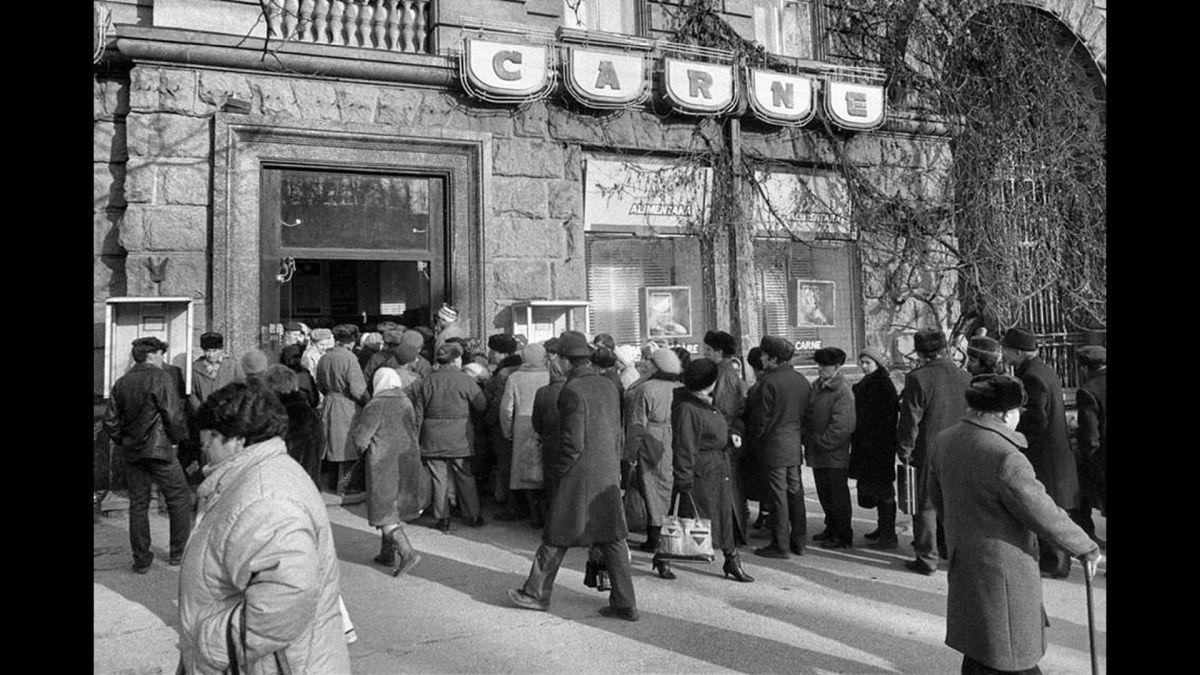
I was young back then and I don’t really remember a lot of the horrible things that were the norm during Ceausescu’s regime, but I don’t plan to forget that it was really bad, even though more and more voices say that it was better back then.
And the young ones who never experienced communism are tempted to believe that nonsense.
I am sure there are even more horrible things about communism in general and Nicolae Ceausescu in particular, things that I don’t remember or know because I was 5 when he was overthrown, but if you’re looking for a bit of history and details about Romania’s communist leader, I have that for you in this article.
So without further ado, here are 10 facts about Nicolae Ceausescu, things you most likely didn’t know about him!
1. One of his dreams was to pay Romania’s external debts
Nicolae Ceausescu became obsessed with this idea which, in theory, is not a bad one.
The dictator was dreaming about complete independence and he wanted to pay the entire external debt that Romania amassed during the industrial revolution led by Ceausescu…
But his methods to achieve his dream were not the best: he started rationing food, as well as gas, water and heating, resulting in a massive decline in the quality of living (which was already relatively low).
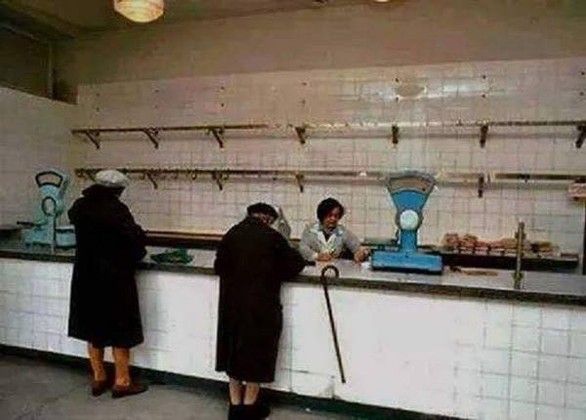
People started to get poorer and poorer, their lives were miserable and it all ended with the revolution in December 1989, when he was overthrown and killed.
Strange enough, this happened just months after he managed to pay all the debt…
You can read more about this on Wikipedia – it’s very interesting to see that in the 60s and 70s Romania had one of the fastest rising economies in the world and Ceausescu himself was considered an “enlightened” leader.
You can check out the video below for some more photos of stores & life in Romania under Ceausescu’s rule. For me, even though I was so small, looking at these photos feels like trying to open an old wound:
2. He was uneducated
Nicolae Ceausescu only managed to finish 4 classes in school, representing elementary school.
He had to move out of the village he was born in (Scornicesti, Olt county) and moved to Bucharest when he was 11, where he became a shoemaker’s apprentice.
Despite all these, he was a charismatic person (by the standards of the time) and extremely active and appreciated within the communist party, which helped him become the most powerful person in Romania.
3. He married his brother’s lover
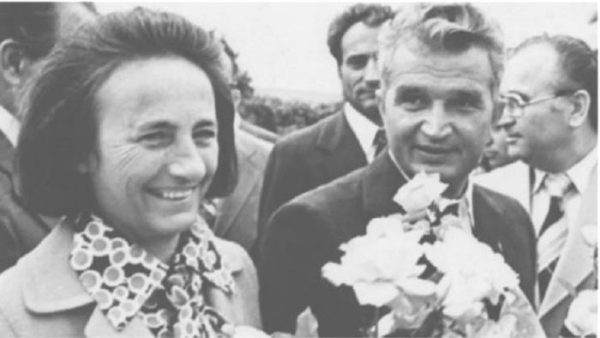
His wife, Elena Ceausescu, was part of the Ceausescu family before the dictator-to-be married her.
She was actually the lover of one of Ceausescu’s brothers before falling in love with Romania’s leader.
As a side note, if you like the names of Nicolae or Elena – or maybe you’re curious about other traditional Romanian names, make sure to read my article on that.
4. Salvador Dali made fun of him
When he became Romania’s president, he was handed the Royal Scepter as a symbol for his power.
However, this was not in accordance with communist principles, which stirred a wave of reactions over Europe.
Salvador Dali himself sent Ceausescu a telegram mocking him, but he did not understands its true meaning and instead, being very proud of the words he had received, he insisted in having it published in all newspapers in Romania.
5. He survived a plane crash
The plane he was in during a trip to Moscow crashed when it landed, with four people losing their lives (three crew members and Romania’s foreign minister). Ceausescu survived with only minor injuries.
6. He was a tiny man with a speech impediment
…and very shy with women, according to rumors. He was just 5’2″ tall (157 cm) and had a speech impediment that resulted in him being bullied when he was younger and mocked (behind his back) during his life.
He was also reportedly extremely shy with women, a problem his wife didn’t help with, since she was reportedly extremely jealous.
But his height was his biggest concern and in order to keep things looking normal, he actually ordered for the stairs of the Casa Poporului (now the Palace of the Parliament) to be shorter, so he could climb them easier.
The stairs are of the same height even today: an interesting thing to notice if you visit the building.
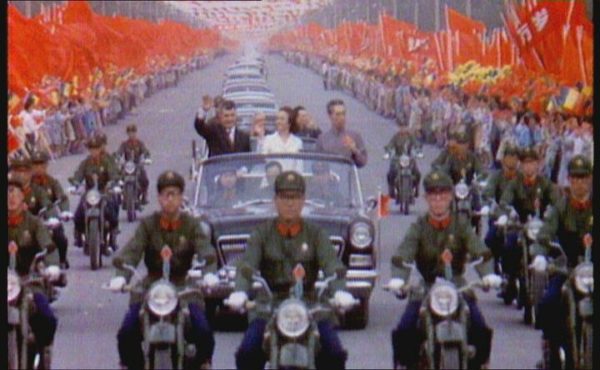
7. He was actually an appreciated leader early on
Nicolae Ceasusescu was Europe’s youngest political leader during those times and appreciated for his political views, especially the external policies and industrial advancements in the country.
He was the only communist leader in the world to have diplomatic relations with Germany and also the only communist leader to be part of the IMF (International Monetary Fund) and World Bank.
8. His wife, officially a renowned scientist, barely knew how to write
Since the dictator can do whatever he wants, he turned his wife into a world renowned scientist.
She “published” various scientific papers, being the leader of the country’s Chemistry research team.
However, she could barely write and was even unable to speak Romanian correctly, just like her husband.
Many jokes circulated during the time, highlighting the mistakes she was making.
On the few occasions she was invited to scientific conferences, she had a “translator” which was actually a scientist who would provide correct answers to the audience, completely ignoring the stupid answers she was giving.
Elena Ceausescu also held multiple Honorary degrees (Doctor Honorist Causa) from multiple national or international universities. Her husband also held 8 such degrees.
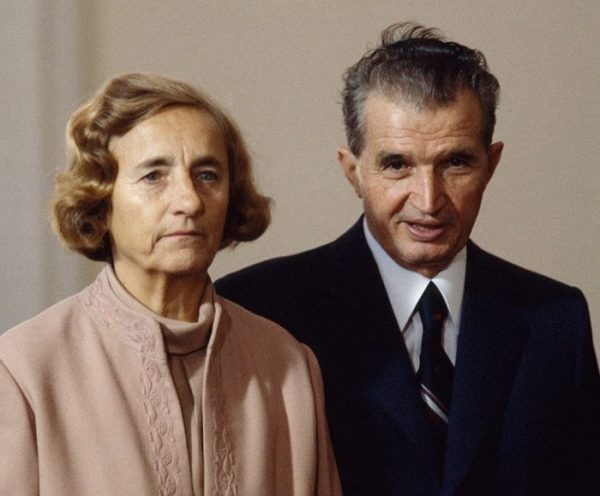
9. Game of Thrones’ Daenerys Targaryen would’ve envied his title
Romania’s dictator was presented as “Nicolae Ceausescu, General Secretary of the Romanian Communist Party, President of the Socialist Republic of Romania and Supreme Commander of the Armed Forces“.
Now that’s a title you don’t hear often and I can only pity the poor fellows who had to introduce him.
10. He was executed while singing the hymn of the communist countries
One of Ceausescu’s life-long phobias was that of getting shot – and that’s exactly how his life ended. He was executed after a brief trial in December 1989, together with his wife.
While he was standing in front of the squad, he was singing the hymn of the communist countries. His final words were: “Long live the Socialist Republic of Romania! History will revenge me!”
His execution was, in my opinion, a savage decision for a savage ruler. The validity of his trial is questioned today (the military court only needed one minute to decide upon the verdict) but it’s all in the past and not much we can do but remember what happened and make sure that similar mistakes will not be made again.
Even though I completely disagree – like most people would today – with the way things were handled back then, we should look at the big picture too.
Not only that this happened back in 1989 when things were completely different than they are today, but also happened in a country that was under a communist regime for such a long time.
Its people simply didn’t know much about personal freedom, normality, fairness or even compassion… violence was still the norm back then and they acted in accordance.
Wrapping up
These would be the Nicolae Ceausescu facts that I had to share today. I have added a few photos as well to better paint an era that’s long gone, but not forgotten.
And it should never be forgotten, so that the same mistakes won’t be repeated.
Do you know any other facts about Nicolae Ceausescu? Let us all know by commenting below.
Or if you want to continue on a happier note, you can keep reading about traditional music in Romania.
- List of the International Airports in Romania (with Map) - April 25, 2024
- Beach, Please Festival 2024: Lineup, Schedule & Dates [Updated April 24] - April 24, 2024
- Best Music Festivals in Romania – with Dates & Lineups [2024 Update] - April 17, 2024


A fascinating account of Ceauşescu, thank you. Under no. 7, actually you meant to write that Romania was the only communist country to have diplomatic relations with ISRAEL. All the communist countries had relations with Germany. Every decade or so, they came to Germany hat in hand begging for reparations for World War II atrocities, so they were very eager for German diplomatic relations. I have read an excellent book by Livea Betea in which she interviewed Alexandru Bârlădeanu, who had worked in the Economics Ministry under Georghe Dej, Ceauşescu and then Ion Iliescu. He had a very low opinion of Ceauşescu, but that is consistent with just about everyone who ever met the man. On a trip to North Korea, Ceauşescu greatly admired the personality cult that was built up around Kim Il-sung, and so he decided he wanted to be worshiped as a demigod too. He destroyed much of old Bucharest to construct his awful Palace of the Republic and massive boulevards fronted by colossal apartment blocks. He did this by borrowing massively from the West, and then, as you said, he decided to pay off the debt by selling everything in Romania that wasn’t nailed down. I remember the first time my father took me to a liquor store in Oklahoma City in the early 1980s. There was a display of Premiat wine from Romania. It sold for $1.99 a bottle. At that price, you couldn’t afford not to buy it! That was probably part of Ceauşescu’s effort to pay off the debt.
What I actually meant by “Germany” was the Federal Republic of Germany which wasn’t really accepted as a state in Europe, especially by the communists. It seems that Ceausescu’s decision to have official diplomatic relations with them caused quite a stir back in the days.
I found it funny that you mentioned the Premiat wine. I had no idea that it at least used to be exported. That’s the wine that we had at our wedding a few years ago, so the brand still stands strong in case you want to taste some more. It’s not as cheap as back in the 80s, but I believe you can still find a bottle for around $3 or $3.5, which is still really cheap!
Well, I certainly don’t mind when I am corrected. Why be wrong one second longer than is necessary? While West Germany did already have diplomatic relations with the Soviet Union in 1955, the other Iron Curtain countries did withhold diplomatic relations out of deference to their socialist brother state East Germany. You are right, Ceausescu did step out of line and establish diplomatic relations with West Germany in 1968, far ahead of the other communist block countries which waited until there was mutual recognition between the two German states in the 1970s. What registered with me and what I think caused a great deal of admiration for Ceausescu in the USA (sorry about that) was his recognition of the state of Israel.
On the subject of Romanian wines, I was invited some time ago here in Japan to a wine tasting and was pleasantly surprised to see a Romanian wine served. A Murfatlar, sorry I don’t remember which one, was universally praised by all the Japanese present, but when the salesman suggested a $30 per bottle price, I had to laugh out loud. There certainly was a significant profit margin calculated into that price!
Last, I want to correct another egregious error in my first comment, the name of the Palatul Poporului in English is “People’s Palace,” not Palace of the Republic.
I didn’t know about Israel, so it’s all good in the end, additional information is always welcome! And don’t worry about the translation for Palatul Poporului (which is also referred to in Romania as Casa Poporului or Palatul Parlamentului)… it’s such a large building that it can have multiple names 🙂
Jeez, I can’t even get the Romanian name right!
Calin:
Ceauşescu, as you said, is still looked upon favorably by some. It’s the same with despots like Hitler, the Kim Jongs, Franco, Stalin, etc.
Granted, some of dictators accomplished some extraordinary things. Some people benefited greatly (but at what cost?), while others suffered greatly.
Of course with the tubby Kim Jong and the patently evil Assad it’s the same–but sadly, it’s the here and now. No matter what happens, history ALWAYS seems to repeat itself it!
I always think we (the US) has butted into places where we shouldn’t have–Iraq, Afghanistan, etc. It’s the country’s responsibility to have the leaders they want or don’t (and now we’re stuck with a Trump or a Clinton–maybe what goes around, comes around? Ugh!!!). By meddling in other countries’ internal affairs, the US has only make things worse–sorry for the aside!
Romania alone decided it was time for Ceauşescu to go, and they quite efficiently dispatched him and his vile wife. Granted, the kangaroo court and summary execution was not, in hindsight, the ideal means of government change–but it was what it was. When the execution happened, it reminded me of Mussolini and his mistress’s execution–pretty gruesome, for sure.
In retrospect, a conviction and prison sentence along with the stripping of all rights and privileges might have been a more humane way to remove him; but again, desperate times called for desperate measures.
It will be interesting to see what becomes of Assad, Kim Jong, and other dictators, as time goes on. I had certainly hoped Assad would have been gone by now–but that’s another story.
So, do any of your “near and dear” remember Ceauşescu with admiration. Do any of your folks yearn for a return to things past? It’s certainly understandable for some people who may now be disadvantaged, to want things as they once were (assuming in those times they were were better off).
~Teil
Indeed, those were crazy times and the people didn’t know how to react. The execution was not the best choice but people still didn’t know what to do. During the times, there was propaganda also and most of the Romanians believed that terrorist forces will arrive to rescue Ceausescu and install him again as president, people were hiding in their basements because there were rumors of incoming airstrikes… it was complete chaos.
I don’t have friends or family who think it was better back then, but there are indeed many people who think so and you can sometimes hear them say that while walking down the street.
Teil, when I lived in Germany and was making a living as a translator and English instructor, I met a Romanian living there who waxed poetic about how wonderful things were under Ceausescu. He pulled out a big illustrated coffee table book about the many hot spring resorts in Romania, and somehow his father had been a top bureaucrat who oversaw one or more of them. The fall of communism had apparently hit his family pretty hard. On a train trip from Brasov to Bucharest, I had the misfortune to sit next to a Romania businessman who went on and on about how Romania had the most advanced chemical industry in Europe under communism, but afterwards evil Western companies had then purchased these assets for the express purpose of shutting them down. I think in all the former communist countries there was about 20% of the population who were party members who lived quite well under communism. After the fall of communism in East Europe, some of these were able to seize the moment and make the transition to capitalism, others didn’t and became its harshest critics. There is a nice German word for “communist nostalgia.” In English, one could translate it as “East-ostalgia.”
Very interesting facts. My wife fled Romania with her parents during this period and we cried when watching the news coverage of the revolution in 1989. I have found Premiat here in the U.S. several times.
Yes, that was a good time to fled the country and generally a good choice, I believe 🙂 Interesting things about Premiat. Really had no idea!
I certainly didn’t know any of these facts about him. Oh my god.. I was laughing out loud about his wife as a scientist and the translator. That must have been very interesting and frustrating for the scientists. I assume death would have been the result had they spoken out. I remember the time when he was executed with his wife. Honestly, l think because firing squads were common when l was young, it was no big deal to me that he got what he deserved. We’ve had long travels but are now been in Johannesburg for a few days now (you didn’t guess right..haha!). We will leave in a few days for Bangkok 🙂
I hope you have a great time in South Africa and Bangkok will be amazing as well! It’s nice that you’re visiting the other part of the world now, where the weather is much better than in the Northern Hemisphere!
I saw the movie of execution and he was not singing for sure.
Let’s get in a new comment on this updated thread. It is amusing to see how animated I got over this topic when you first brought it up in 2016! A lot of water has flowed under the bridge since then. The Corona virus/Covid-19 pandemic is now uppermost in our minds. I hope the whole “Romanian Experience” family, no matter where they live, are at home and healthy. May your “streams of income” continue to flow throughout this crisis!
Stuart, people get animated over much less important things than history! And there’s nothing wrong about animated discussions, in the end 🙂
We are still safe, staying exclusively at home and hoping for the best. Revenue from blogging has been already affected (travel blogging is virtually dead right now) but as long as we are healthy, we are happy 🙂 And at the moment at least, we are happy 🙂
I hope you are doing great in Japan as well.
Woof woof to Mrs. Ceausescu! (I say that because she was a vile person, and this was reflected by her visage.)
She was certainly no Nadia Elena Comăneci. (Lucky Bart Conner!) Can’t believe she’s 58! (I know, I am gaga for Nadia;-))
Glad Romanian people were smart enough to rid themselves of evil Ceaușescus. (I probably would have put
them in jail, though.) I feel a little sad for surviving son, Valentin Ceaușescu, because he at least made
something of himself, being a highly educated physicist. I understand he distanced himself, as much as possible, from his father’s politics.
The times were different back then and probably many were worried that if they jailed them, there would still be a risk of them escaping or trying to get back in power.
I don’t really know much of Ceausescu’s children – I know that they all had tough lives and tried to distance themselves from their parents. Especially after 1989, I can only imagine how difficult it was for them all to live a normal life…
The Hungarians were revolting. Luckily the Transylvanian Rumanians saw their chance to get free from the communist regime.
It’s so wild to read this again after having visiting the Peoples Palace. I do remember the shorter stairs and l can almost hear the guide telling us all about this funny little man. He definitely had his Napoleon complex. It is an insane building though, and l am glad l got to visit it.
Yes, from that visit I remembered the detail about the stairs. He was big enough to be able to adjust a building based on his height, though :))
There could be, of course, some people trying to get more from you just because you are a foreigner. I do remember the shorter stairs and l can almost hear the guide telling us all about this funny little man. I understand he distanced himself, as much as possible, from his father’s politics.
Interesting. But a correction needed; food isn’t ‘rationalized’, it’s ‘rationed’. This is known as ‘rationing’.
Also, things were surprisingly similar to today in 1989, in terms of social mores and the popularity of dictators (and executing them!).
I lived in Spain in the 1990s and am struck by the similarity of what you say; I remember how horrified I was that almost everyone at the time over 40 said that things were better under Franco. This also happened in Iraq with Saddam in the 2000’s. As you say, it’s scary how we value certainty, even when that certainty is certainty of oppression. That’s why I try to teach my kids to embrace risk and change… the opposite of what makes people gravitate towards right and ultra-right wing politicians who play on baseless fears and promise certainty.
Thanks for the comment, James! I will correct the error (these can happen since English is not my native language).
I still think (and hope) that far right politicians (or far left, if they ever become popular) will not be able to get as much power as they once could. They can stir things up, but that would probably be all. The example I have in mind is the former Greek Prime Minister Tsipras who made a lot of noise before being elected, but in the end things weren’t that different.
But you can never know and it’s definitely better not to try this type of experiments.
Great read, thanks! It is early 2022 and I’m hear after all the coverage of the Canadian Truckers in Ottawa. Part of the coverage was a handful of different interviews by Romanians who immigrated to Canada, supporting the fight against COVID mandates. The consistent story is they remember the absolute lack of freedoms and liberty in communist Romania. Their parents relayed it was a slow decay, culminating in the fall of the Soviet Union. I was a young US man in the late 1980s and see a lot of similarities to what is happening now in formerly free countries around the world. Liberties we once took fore-granted slowly eroding.
What I see are right wing parties in western countries parading around “freedom” and yet China’s communist government is the only one that has been steadfastly committed to keeping people alive. It isn’t a lack of freedom, it is the intent to keep people alive, to keep people healthy, and to do right by the people. Convoy protesters telling people to inject horse dewormer after infection and to reject masks is not exactly a good look. But its the way the political right works: distract, deflect, and pretend they are about freedom when they promote death.
It was a Stalinist-style execution in this century and with an absurd procedure, in defiance of any legal norms, which included Nicolae Ceausescu and Elena, his wife.
Everything that followed was based on what was built in the supposed regime under Ceausescu’s leadership, but my opinion is that behind Ceausescu’s presence were those who were really in charge and who planned the removal of their boss just to share the spoils.
The debt-free country has now reached 50% of GDP debt, and that is what the discretionary power was based on, at the discretion of those who replaced it, no one from civil society or those who rebelled against communism.
Spot on: the people who lost their lives in 1989-1991 were mostly communists, not the other way around.
Do any of us really believe that if a group of people in the US were killing leaders and trying to end the system, that it would be a peaceful transfer of power without bloodshed? This is what happens during revolution.
The protesters in Timisoara that lost their lives were few in number (western texts like to fluff it up). They were working toward a coup. Can you blame the Securitate for trying to protect the government?
It is time we allow for other voices to speak on these matters. 33 years of silence and forced western-promotional statements are growing old. Ceausescu was in power for 24 years. It has now been 33 years since he was executed in cold blood. Let’s have an honest conversation for a change.
That is actually true: prior to his arrival in villages, they would paint dead leaves green, make sure everything was nicely trimmed and that new foliage was planted. They even allegedly quarantined people to make sure Ceausescu didn’t pick up any illnesses. Like many other dictators, he had a significant ego.
The reason why Ceausescu is favorably remembered by many is because he did lots of good during his leadership. Let’s remember that democracy really is delivered through different means, and a single party government that gives power to the working class, real power, where there is a right to jobs, health care, education, housing, and dignity has a lot of sway. What Americans and western culture thinks is democracy might not be in the context of so many categories. Employment being a key factor.
People were not starving to death in the 80’s, but were there shortages? Absolutely. How do I know? My family is Romanian and I am old enough to know the stories of those who lived before they died. What we are told in western media simply isn’t true, Romania as a country was likely doing better in 1989 than it is in 2022. This is a simple fact. Any shortages of products aside, the people had housing security where you couldn’t get charged whatever the capitalists want, and you had basic needs covered.
The only bloodshed were communists who got killed, not the other way around. So let’s remember this history more honestly!
As somebody who LIVED in Romania in 1989 (and before), I can tell you that it was MUCH worse back then than in 2022. Before 1989, also.
For this message alone, I would’ve gone straight to jail, for example 🙂
People were poor, stealing was considered the norm, there was no way for those who work hard to get promotions or to make it on your own, corruption was really high, you had to pay bribes to visit doctors or any officials… and so on.
You had major electricity outages, food was rationalized, just 2-4 hours of state-censored TV per day, the quality of all products was mediocre at best, you had to wait for years in queue if you wanted to buy a car (and you could only get a Romanian made one), books and movies were censored, you had to wait for hours in queue to get 1 liter of milk (my grandmother used to wake up at 4-5 AM to reserve her spot at the queue).
Those times were horrible and those who say it was better either got used to all the crap they were forced to go through, or forgot the big picture or are just intentionally sharing just part of the story.
Yes, you had housing security – but NO options in regards of where your housing was (could be the outskirts of the city, a building with no electricity or you could get moved to a new city without having a say) and basic needs covered only meant that most people only lived a basic (usually miserable) life.
I have family that suggest a different experience. Genuinely. You wouldn’t be put in prison for speaking person to person, that part is pure hyperbole.
The only point I’ll make is that the shortages of the 80’s did cause line ups, but people did not starve in the streets and go without housing or jobs as it is today.
My family is mostly dead, but they did not recount the history the way its said here. When they arrived in the west, where I was stuck to live forever more, they said they were surprised how hard it is to maintain decent employment, housing, and etc. They regretted the decision to leave.
I am very interested in one thing he did achieve. Decree 770 raised the birth rate above replacement – all be it briefly. No one else has managed to do that. Given that this is such an important and basic survival requirement – I am interested to know how Romanians reacted to it and how much it impacted on Ceausescu’s popularity.